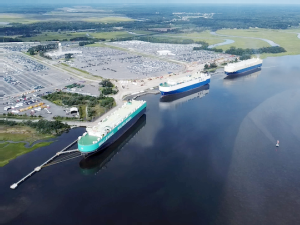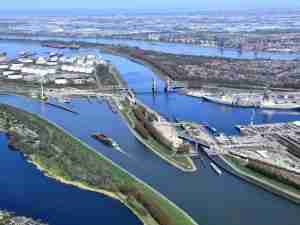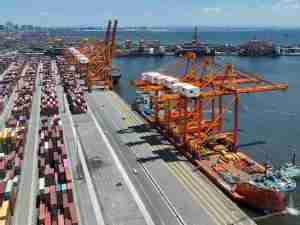China, the world's largest iron ore importer, has closed its ports to Vale's huge dry bulk carriers after domestic ship owners protested against the arrival of the first and only so-called Valemax into the country in December.
That has forced Vale to take a more costly route to deliver iron ore to China, opening up a trans-shipment hub in the Philippines' Subic Bay port in February. The world's top iron ore exporter will also open a hub in Malaysia in 2014 and is considering projects in South Korea and Japan.
Vale's board of directors has approved the building of the floating storage vessel but the firm has yet to decide where it will operate when completed, said Claudio Alves, Vale's global marketing director.
"We are in the final contracting process and South Korea could be one possibility," Alves told reporters at a ceremony to name two Valemaxes. Many of the Valemaxes have been financed by Chinese banks and built by Chinese shipyards.
Vale's new floating storage unit will be similar to the Philippine-based Ore Fabrica, which is serving as a platform to transfer iron ore from Valemaxes to smaller vessels for transport to China and other Asian destinations, Alves said.
He did not say when the vessel would be completed nor how much it would cost.
Vale is counting on a fleet of 35 Valemaxes, each of which can carry up to 400,000-tonnes of cargo, to slash shipping costs to China to help it compete with Australian rivals BHP Billiton and Rio Tinto .
The 380,000-ton Berge Everest was the first and only Valemax allowed into China, docking at Dalian Port on Dec. 28. Chinese shipping firms fear that Vale's vessels will be used by the miner to monopolise the lucrative iron ore trade between Brazil and China. (Reuters)










